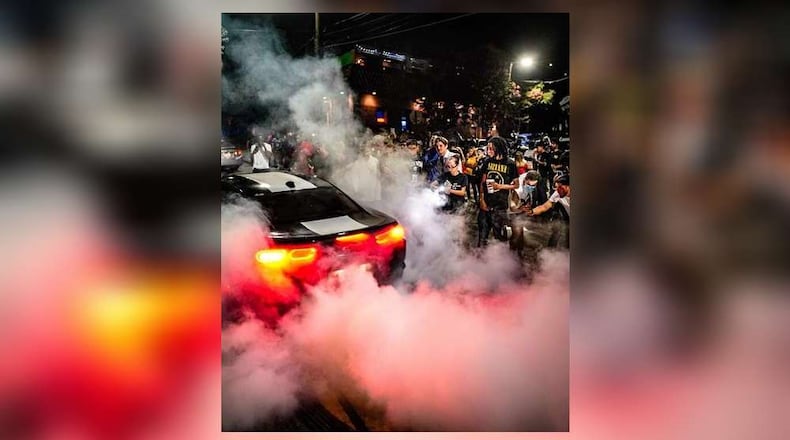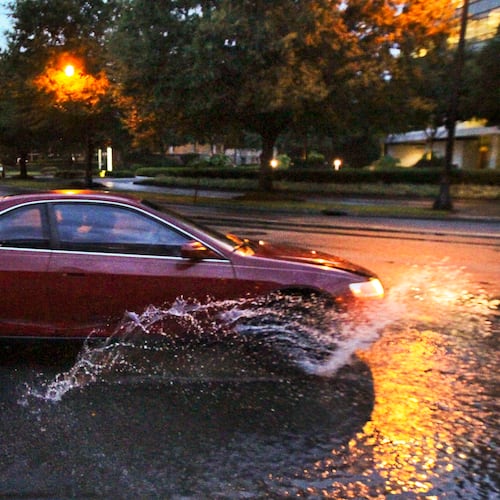Anyone arrested on charges related to street racing will no longer be able to immediately bond out of jail, under a new law passed by the Atlanta City Council on Monday.
Before the late-night vote, the city played hundreds of recorded comments on the issue submitted by members of the public, totaling about seven hours.
The ordinance, which passed by a vote of 10-3, requires people arrested in connection with street racing to stay in jail until they go before a judge, usually within 24 to 48 hours of arrest. The judge will then determine a bond amount and any special restrictions before a suspect can be released. Previously, offenders were allowed to immediately bond out of jail after arrest.
Residents across the city have grown frustrated this year by street racing, a catch-all term that often involves drivers performing stunts and laying drag in front of a cheering crowd on city streets. Atlanta police have ramped up their enforcement efforts over the last few months. In the last week, Atlanta police said, officers made 144 traffic stops, issued 156 citations, arrested eight people and impounded six vehicles in connection with street racing.
The residents who called in with comments for the council were mostly in support of the ordinance, though many critics said it is a reactive measure that rolls back some of the bail reform efforts championed by city officials in 2018.
One woman said she can hear noise from loud cars “every single night.” Her sentiment mirrored the comments from other residents who submitted comment in favor of the measure: “It is out of control, and we are asking you to please, please support this ordinance. Return safety to our streets,” she said.
The ordinance, sponsored by citywide Councilman Michael Julian Bond, essentially makes a temporary order from Atlanta’s chief municipal judge the law. That temporary order, issued just a few weeks ago, required those arrested on charges connected to street racing to appear in front of a judge before they could be released from jail.
Specifically, the permanent measure categorizes racing, laying drag, reckless driving, and operation of ATVs as offenses containing an “element of violence.”
“Street racing is a problem that endangers the lives and negatively impacts the quality of life of citizens throughout the city of Atlanta,” Councilman J.P. Matzigkeit, whose district includes much of Buckhead, said in a statement after the vote. “This sends the signal street racing is serious and not acceptable.”
Supporters of Bond’s ordinance say increased punishments could deter people from street racing. They’re also hopeful the recent reopening of the Atlanta Municipal Court will resolve some cases that have been backlogged since the pandemic forced the court to shut down.
The street racing events, which are usually organized and circulated on social media, are a time for many participants to socialize and show off their cars, said Devin Barrington-Ward, the founder of social justice organization The Black Futurists Group and an ally of the “car enthusiast” community in Atlanta. He and other social justice advocates argue putting people behind bars for a longer period of time isn’t the answer and might not end up solving the issue.
“It is really trying to turn back the clock. It’s going backwards,” said Xochitl Bervera, the director of the Atlanta-based Racial Justice Action Center, referencing the city’s 2018 elimination of the cash bond requirement for some low-level offenders who otherwise would sit in jail because they can’t afford bail.
Activists like Bervera would prefer a more community-oriented approach, like helping the drivers find a sanctioned space where they could safely gather, though that would likely have its own legal and logistical complications.
City leaders say they have no other choice than to increase the penalties for street racing.
About the Author
Keep Reading
The Latest
Featured


